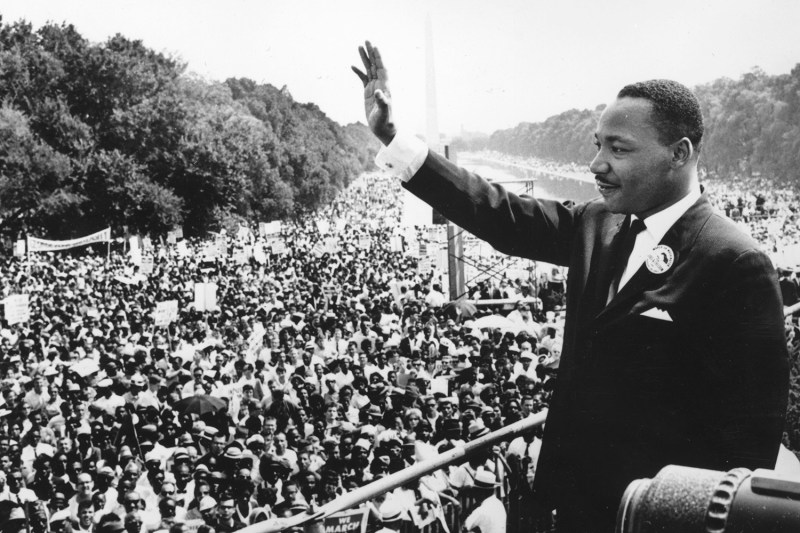
A great speech is something that combines persuasive writing, a comfort with public speaking, and a meaningful message to create an impression greater than the sum of its parts. There’s no one set of rules to govern the ideal speech, and plenty of people struggle with them even with teams of experts to help them out — just see the majority of speeches given by politicians. But once in a while, a truly great speaker and a truly great speech come together to create something that stands out and withstands the test of time, carrying meaning with it through generations even to those who weren’t yet born when it was given.
Great speeches are more than just rhetorical flourish or impressive performance — they’re also calls to action, able to persuade and embolden the listener. These speeches can be inspiring, informative, and instructive, whether you’re interested in learning more about history or working on a speech of your own.
We’ve rounded up 10 of history’s greatest speeches, including excerpts so you can learn about how the power of a great speech can last for years.
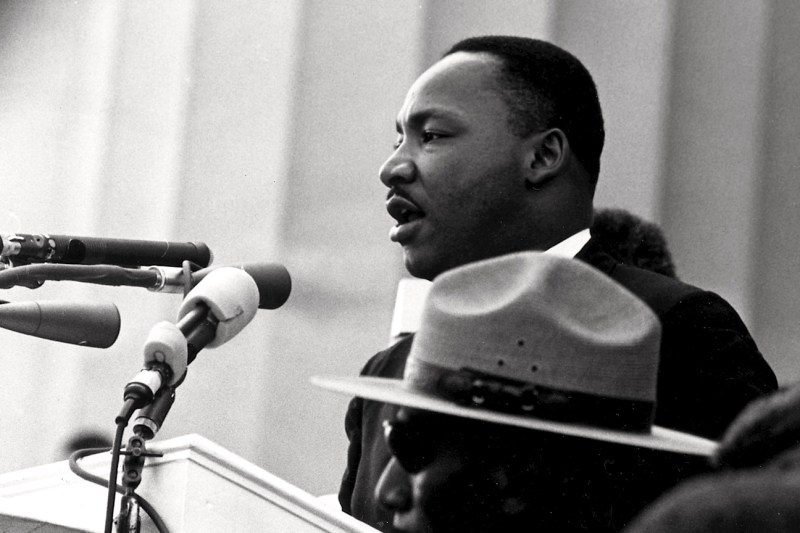
Martin Luther King, Jr.
1963 ‘I Have a Dream’ speech
The Reverend Martin Luther King, Jr.‘s I Have a Dream speech, delivered on August 28, 1963, is one of the finest pieces of oratory in human history. It blended masterful, rich language with the oratorical technique of repetition and it was utterly fearless.
King would be dead by an assassin’s bullet less than five years after delivering his most famous speech. His words were no mere rhetoric; they were an affirmation of the value of human life and the expression of a cause for which he would give his own.
“I say to you today, my friends, so even though we face the difficulties of today and tomorrow, I still have a dream. It is a dream deeply rooted in the American dream. I have a dream that one day this nation will rise up and live out the true meaning of its creed, ‘We hold these truths to be self-evident, that all men are created equal’ …
“I have a dream that my four little children will one day live in a nation where they will not be judged by the color of their skin but by the content of their character.”
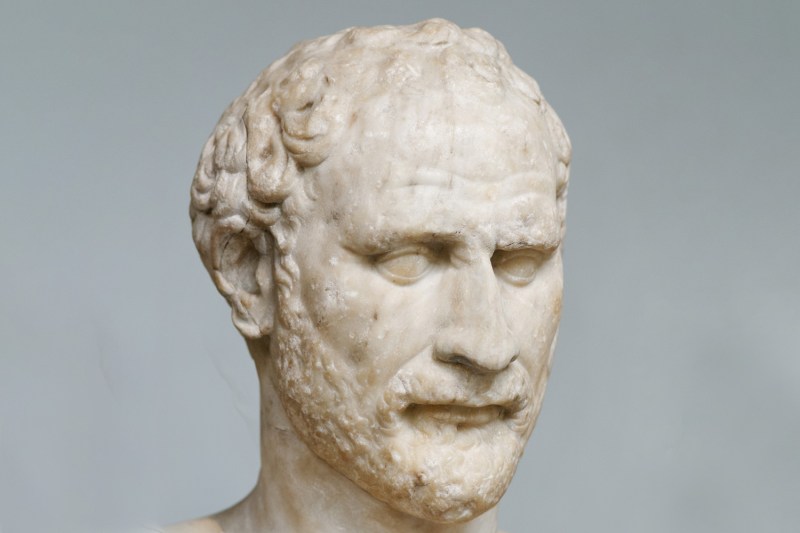
Demosthenes
341 BCE ‘Third Philippic’
Though you may not have heard of the Athenian orator Demosthenes, consider the fact that one of history’s most famed speakers of all time, Cicero, cited his ancient forebear 300 years later. Demosthenes’ Third Philippic, so-called because it was the third speech he gave devoted to convincing his fellow Athenians to take up arms against the encroaching forces of Phillip of Macedon, literally led men to war. At the end of his speech, delivered in 341 BCE, the Athenian Assembly moved at once against their rival, spurred on by lines damning the past inaction of his fellow citizens:
“You are in your present plight because you do not do any part of your duty, small or great; for of course, if you were doing all that you should do, and were still in this evil case, you could not even hope for any improvement. As it is, Philip has conquered your indolence and your indifference; but he has not conquered Athens. You have not been vanquished, you have never even stirred.
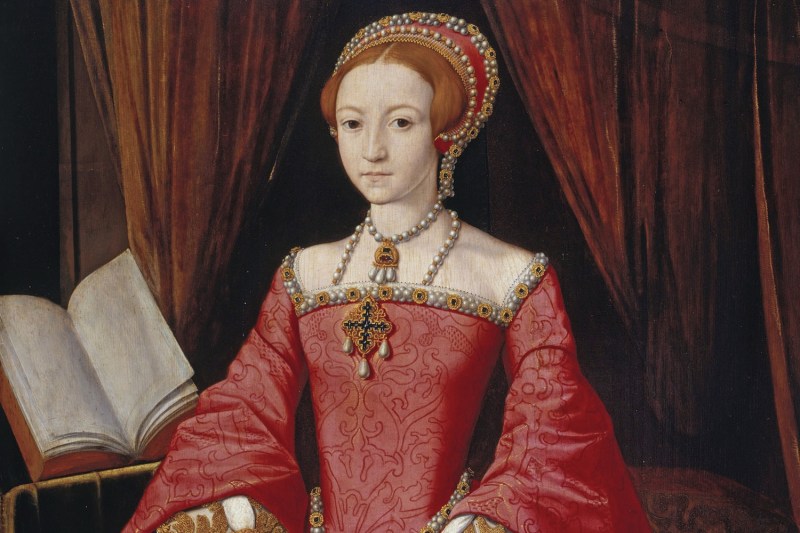
Queen Elizabeth I
1588 ‘Spanish Armada’ speech to the troops at Tilbury
In 1588, English monarch Queen Elizabeth I gave one of the manliest speeches in history, even at one point, putting down her own body for being female. As the “mighty” Spanish Armada, a flotilla of some 130 ships, sailed toward Britain with plans of invasion, the queen delivered a rousing address at Tilbury, Essex, England. As it turned out, a storm and some navigational errors took care of the Spanish warships for the most part. Still, it was a bold speech that helped bolster a nation. This speech also made Queen Elizabeth famous for the armor she wore in front of her troops.
“I am come amongst you, as you see, at this time, not for my recreation and disport, but being resolved, in the midst and heat of the battle, to live and die amongst you all; to lay down for my God, and for my kingdom, and my people, my honour and my blood, even in the dust. I know I have the body but of a weak and feeble woman; but I have the heart and stomach of a king, and of a king of England too, and think foul scorn that Parma or Spain, or any prince of Europe, should dare to invade the borders of my realm: To which rather than any dishonour shall grow by me, I myself will take up arms, I myself will be your general, judge, and rewarder of every one of your virtues in the field.”
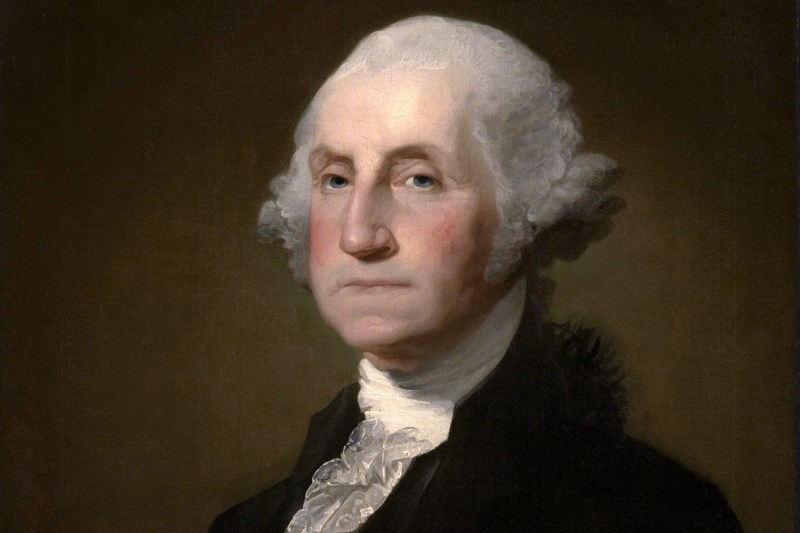
George Washington
1783 Resignation speech
To grasp the true power of George Washington‘s resignation as the commander-in-chief of the U.S. military (then known as the Continental Army) on December 23, 1783, you have to go beyond the words themselves and appreciate the context. Washington was in no way obliged to resign his commission, but did so willingly and even gladly, just as he would later refuse a third term as president of the nation, establishing a precedent honored into the 1940s and thereafter enshrined in law. Despite being the most powerful man in the fledgling military and then becoming the most powerful man in the United States, the staid and humble Washington was never hungry for power for himself; he just happened to be the best man for the job(s).
Even in his last address as leader of the nation’s armed forces, Washington made it all about America, and not about himself:
“Happy in the confirmation of our Independence and Sovereignty, and pleased with the opportunity afforded the United States of becoming a respectable Nation, I resign with satisfaction the Appointment I accepted with diffidence. A diffidence in my abilities to accomplish so arduous a task, which however was superseded by a confidence in the rectitude of our Cause, the support of the Supreme Power of the Union, and the patronage of Heaven.”

Abraham Lincoln
1863 ‘Gettysburg Address’
There’s a reason many people consider the Gettysburg Address to be the best speech in American history: It probably is. In just 275 words on November 19, 1863, near Gettysburg, Pennsylvania, President Abraham Lincoln managed to express the following sentiments:
- America is both a place and a concept, both of which are worth fighting.
- Fighting is horrible, but losing is worse.
- We have no intention of losing.
Ironically, one line in Lincoln’s speech proved to be laughably inaccurate. Midway through the speech, he humbly said: “The world will little note, nor long remember what we say here.” In fact, the world continues to remember his brief yet very stirring address.
“In a larger sense, we cannot dedicate, we cannot consecrate — we cannot hallow — this ground. The brave men, living and dead, who struggled here have consecrated it far above our poor power to add or detract …
“It is for us the living, rather, to be dedicated here to the unfinished work which they who fought here have thus far so nobly advanced. It is rather for us to be here dedicated to the great task remaining before us; that from these honored dead we take increased devotion to that cause for which they here gave the last full measure of devotion; that we here highly resolve that these dead shall not have died in vain; that this nation, under God, shall have a new birth of freedom, and that government of the people, by the people, for the people, shall not perish from the Earth.”
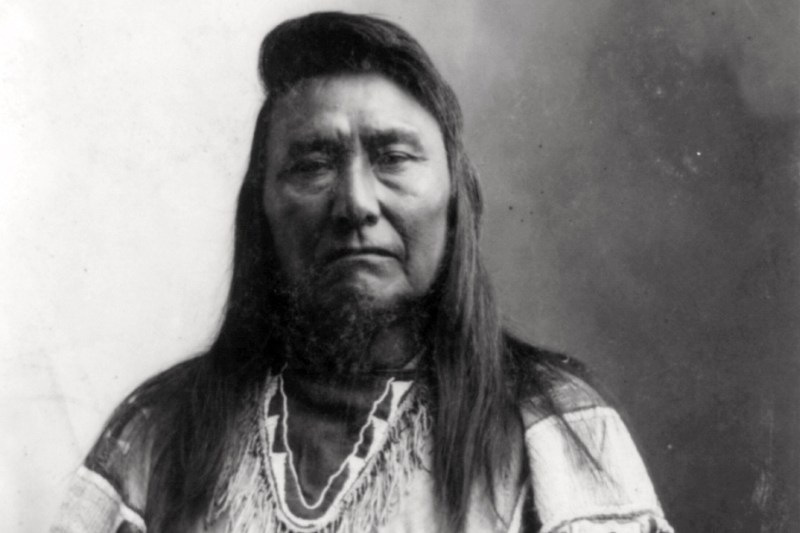
Chief Joseph
1877 Surrender speech
On October 5, 1877, Nez Perce tribe leader Chief Joseph delivered a short, impromptu, and wrenching speech that many see as the lamentation of the end of an era for Native Americans and the lands that were stolen from them. Overtaken by the United States Army during a desperate multi-week retreat toward Canada, Chief Joseph surrendered to General Howard with this bleak, moving message:
“I am tired of fighting. Our chiefs are killed. Looking Glass is dead. Toohoolhoolzote is dead. The old men are all dead. It is the young men who say, ‘yes’ or ‘no.’ He who led the young men [Olikut] is dead. It is cold, and we have no blankets. The little children are freezing to death. My people, some of them, have run away to the hills, and have no blankets, no food. No one knows where they are — perhaps freezing to death. I want to have time to look for my children and see how many of them I can find. Maybe I shall find them among the dead. Hear me, my chiefs! I am tired. My heart is sick and sad. From where the sun now stands I will fight no more forever.”

Lou Gehrig
1939 ‘Luckiest Man’ speech
No one wants a deadly disease named after them, but that’s what happened to baseball legend Lou Gehrig, who died at 37 after a brief battle with ALS, commonly known as “Lou Gehrig’s disease.” Following a career in which the Hall of Fame player earned many of baseball’s top honors and awards, Gehrig delivered one of the most touching speeches of the 20th century, a speech in which he brought comfort to those mourning his illness even as his health fell apart.
In essence, Gehrig told people not to worry about one dying man, but instead to celebrate all life had to offer as he listed all the wonderful things that occurred in his own life. In so doing, he brought solace to many and created a model of selflessness. Gehrig delivered this short speech at Yankee Stadium on July 4, 1939.
“Fans, for the past two weeks you have been reading about a bad break. Yet today I consider myself the luckiest man on the face of the earth. I have been in ballparks for 17 years and have never received anything but kindness and encouragement from you fans …
“So I close in saying that I may have had a tough break, but I have an awful lot to live for.”
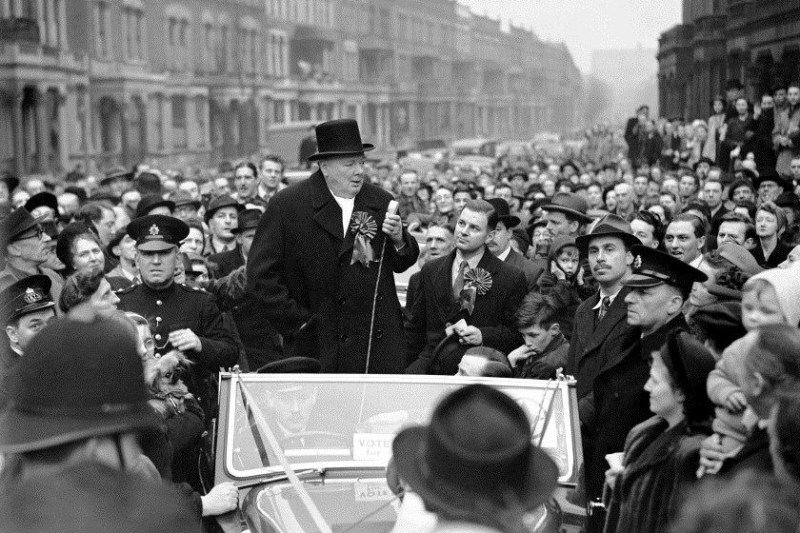
Winston Churchill
1940 ‘We Shall Fight on the Beaches’ speech
Winston Churchill delivered many superlative speeches in his day, including the 1946 address that created the term “Iron Curtain” to describe the boundary of Britain’s recent ally, the Soviet Union, and a 1940 speech praising the heroism of the British Royal Air Force in which he uttered the line: “Never was so much owed by so many to so few.”
But it was his bold and bolstering speech delivered on June 4, 1940, to the British Parliament’s House of Commons — commonly referred to as We Shall Fight on the Beaches — that most exemplifies the famed leader. These were more than just words — these were a promise to his nation that they were all in the fight wholeheartedly together and it was a heads-up to the Axis powers that attacking the Brits had been a bad idea.
“We shall go on to the end, we shall fight in France, we shall fight on the seas and oceans, we shall fight with growing confidence and growing strength in the air, we shall defend our Island, whatever the cost may be, we shall fight on the beaches, we shall fight on the landing grounds, we shall fight in the fields and in the streets, we shall fight in the hills; we shall never surrender.”
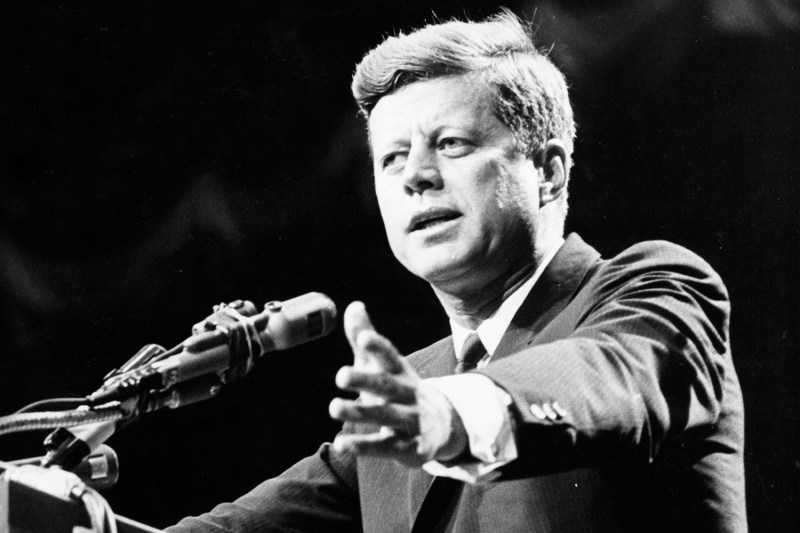
John F. Kennedy
1961 inaugural address
Much of President John F. Kennedy‘s pithy 1,366-word inaugural address, delivered on January 20, 1961, was well-written and meaningful, but as often happens, his speech has stood the test of time thanks to one perfect phrase. Amidst an address filled with both hope and dire warnings (“Man holds in his hands the power to abolish all forms of human poverty and all forms of human life,” the latter being a clear reference to atomic weapons), he issued a direct appeal to Americans everywhere to stand up for their country. You know the line:
“And so, my fellow Americans: Ask not what your country can do for you — ask what you can do for your country. My fellow citizens of the world: Ask not what America will do for you, but what together we can do for the freedom of man.”
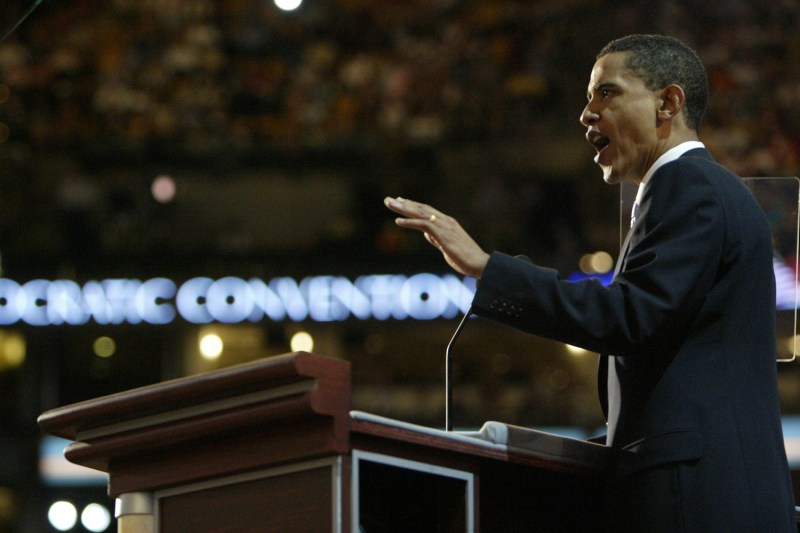
Barack Obama
2004 Democratic National Convention keynote address
When our future president – then a candidate for the U.S. Senate in Illinois – Barack Obama delivered a 17-minute speech on the evening of July 27, 2004, at the Democratic National Convention endorsing presidential candidate John Kerry, the personal trajectory of one man and the history of an entire nation shifted dramatically. Already an up-and-coming politician gaining traction in his home state of Illinois, Obama’s keynote address that night transformed him into a national figure and paved the way for his journey to becoming the first POTUS of color. What was it about the speech that so moved the country?
Partly, it was simply the excellent writing, most of which Obama handled himself. Perhaps more so, it was the message of the speech, which spoke to the “abiding faith in the possibilities of this nation.” In short, Obama reminded us of who we were supposed to be as citizens of this nation. And for a flickering moment, many of us heard him.
“There’s not a liberal America and a conservative America; there’s the United States of America. There’s not a Black America and white America and Latino America and Asian America; there’s the United States of America …
“We are one people, all of us pledging allegiance to the stars and stripes, all of us defending the United States of America. In the end, that’s what this election is about. Do we participate in a politics of cynicism, or do we participate in a politics of hope?”

More famous speeches to inspire you
While we’ve taken an in-depth look at some of history’s most famous speeches, the list goes much further than those 10. Here are a few more great speeches that helped shape history that still have the power to inspire.
- 1941 – President Franklin Delano Roosevelt – Day of Infamy speech – Roosevelt’s address to Congress on December 8, 1941, came the day after the attack on Pearl Harbor. It’s best known for its opening line: “Yesterday, December 7, 1941 – a date which will live in infamy – the United States of America was suddenly and deliberately attacked by naval and air forces of the Empire of Japan.” The speech spurred Congress to declare war on Japan and thrust the U.S. into World War II.
- 1933 – President Franklin Delano Roosevelt – First Inaugural Address – Considering FDR served four terms during the end of the Great Depression and through World War II, it stands to reason that he would have some pretty famous speeches. His first inaugural address from 1933 is also remembered for one powerful line. As he discussed his plan to pull the country out of the Great Depression, he uttered this iconic line: “So, first of all, let me assert my firm belief that the only thing we have to fear is … fear itself.”
- 1986 – President Ronald Reagan – Address to the Nation on the Explosion of the Space Shuttle Challenger – when Reagan addressed the country on the night of January 28, 1986, the U.S. was reeling from seeing the Space Shuttle Challenger explode, just seconds after launch, killing the crew, which included Christa McAuliffe, who was to be NASA’s first teacher in space. Reagan was to have delivered his State of the Union speech to Congress that night but canceled it in the wake of the Challenger disaster. The speech included these memorable words of condolence: “We will never forget them, nor the last time we saw them, this morning, as they prepared for their journey and waved goodbye and ‘slipped the surly bonds of earth’ to ‘touch the face of God.'”
- 2001 – President George W. Bush – Address to the nation after 9/11 – The morning of September 11, 2001, Bush was at a Florida elementary school to meet with children. He would have no idea that the day would end with him addressing the country after the horrific terrorist attacks that brought down the World Trade Center and damaged the Pentagon. That night, Bush gave the country words of hope, saying that the attacks did nothing to damage the American spirit. “Today, our fellow citizens, our way of life, our very freedom came under attack in a series of deliberate and deadly terrorist acts,” Bush said. “The pictures of airplanes flying into buildings, fires burning, huge structures collapsing, have filled us with disbelief, terrible sadness, and a quiet, unyielding anger. These acts of mass murder were intended to frighten our nation into chaos and retreat. But they have failed; our country is strong.”
We hope you’re feeling more inspired and determined to make your own history after perusing this list. For more historical inspiration, check out ten of our favorite Black History films, a list of fantastic history books to read, a group of iconic photographs of people who changed history, and seven amazing books documenting LGBTQ+ history — not to mention the importance of historical heroes who have been often overlooked. However you intend to change your present and future, we wish you nothing but the best of luck.



